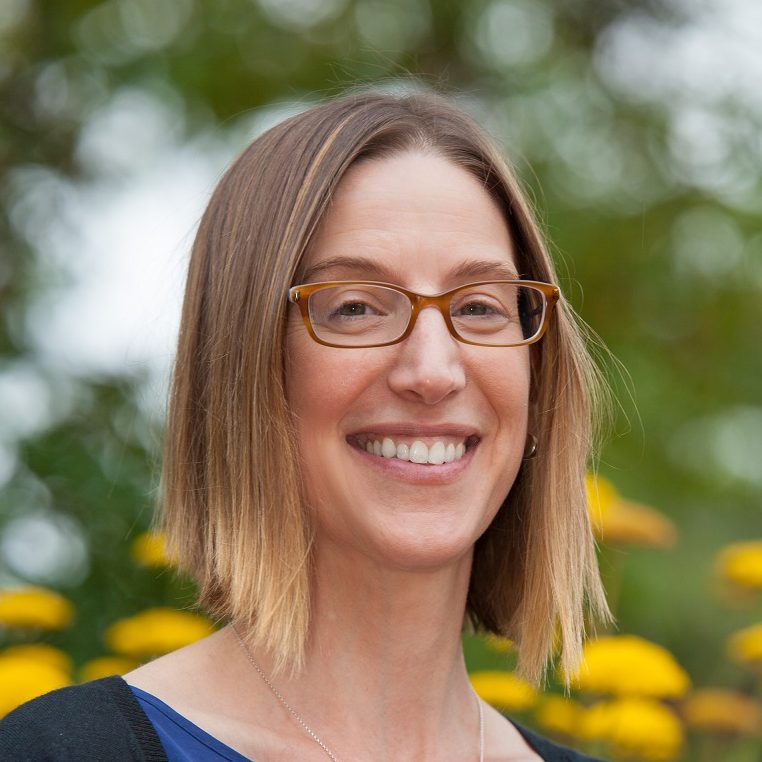Associate Professor Karen Hébert

Environmental politics in the subarctic North; Resource industries and commercial fisheries; Struggles over sustainability
Biography
My research examines changing natural resource economies, environmental politics, and struggles over sustainability in the subarctic and circumpolar North. An ethnographer by training, I work at the intersection of critical human geography, cultural anthropology, and political ecology, contributing to cross-disciplinary conversations in environmental studies and science studies. I have conducted long-term fieldwork in Alaska, primarily in the Bristol Bay region of southwestern Alaska. My first major research project focused on historical and recent transformations in the Alaska salmon industry. In recent years, I have explored how the experience of living in an environment “at risk” shapes livelihoods and resource politics across coastal Alaska. In collaboration with Carleton University faculty member Danielle DiNovelli-Lang and a student research team, I have followed the activities of scientists, activists, government officials, and rural residents in two different Alaskan regions to analyze the shifting nature of resource development debates involving mining, logging, and fishing.
Before joining Carleton in 2016, I was jointly appointed as an assistant professor in the Department of Anthropology and the School of Forestry and Environmental Studies at Yale University. I have been a scholar in residence at the School for Advanced Research in Santa Fe, New Mexico, and a postdoctoral fellow in the Program in Agrarian Studies at Yale. I hold a PhD in Anthropology from the University of Michigan and a BA in Humanities from Yale.
Selected Publications:
Journal Articles
DiNovelli-Lang, Danielle, and Karen Hébert. 2022. The Biggest, the Best, the Most, the Last: Creating Valuable and Vulnerable Resources in Coastal Alaska. In Arctic Abstractive Industry: Assembling the Valuable and Vulnerable North, Arthur Mason, ed., pp. 45-64. New York: Berghahn Press. https://www.berghahnbooks.com/title/MasonArctic
Dinovelli-Lang, Danielle and Karen Hébert. 2024. Always and Forever: Materializing an Environmental Public in Bristol Bay, Alaska. The Extractive Industries and Society 17: 1-12. https://doi.org/10.1016/j.exis.2023.101324
DiNovelli-Lang, Danielle and Karen Hébert. 2019. Rural Alaska: The Struggle for Subsistence. Journal for the Anthropology of North America 22(2): 69-71. https://doi.org/10.1002/nad.12114
Hébert, Karen and Samara Brock. 2017. Counting and Counter-Mapping: Contests over the Making of a Mining District in Bristol Bay, Alaska. Science as Culture 26(1): 56-87.
http://www.tandfonline.com/doi/full/10.1080/09505431.2016.1223112
Hébert, Karen. 2016. Chronicle of a Disaster Foretold: Scientific Risk Assessment, Public Participation, and the Politics of Imperilment in Bristol Bay, Alaska. Journal of the Royal Anthropological Institute (JRAI) 22 (S1): 108-126. http://onlinelibrary.wiley.com/doi/10.1111/1467-9655.12396/abstract
Hébert, Karen. 2015. Enduring Capitalism: Instability, Precariousness, and Cycles of Change in an Alaskan Salmon Fishery. American Anthropologist 117 (1): 32-46. http://onlinelibrary.wiley.com/doi/10.1111/aman.12172/full
Hébert, Karen. 2014. The Matter of Market Devices: Economic Transformation in a Southwest Alaskan Salmon Fishery. Geoforum 53: 21-30. http://www.sciencedirect.com/science/article/pii/S0016718514000268
Hébert, Karen, and Diana Mincyte. 2014. Self-Reliance beyond Neoliberalism: Rethinking Autonomy at the Edges of Empire. Environment and Planning D: Society and Space 32 (2): 206-222. http://dx.doi.org/10.1068/d6312
Foley, Paul, and Karen Hébert. 2013. Alternative Regimes of Transnational Certification for Alaska Salmon: Marketization, Territoriality, and Governance. Environment and Planning A 45 (11): 2734-2751. http://dx.doi.org/10.1068/a45202
Hébert, Karen. 2010. In Pursuit of Singular Salmon: Paradoxes of Sustainability and the Quality Commodity. Science as Culture 19 (4): 553-581. http://dx.doi.org/10.1080/09505431.2010.519620
Book Chapters
DiNovelli-Lang, Danielle, Karen Hébert, and Sonya Gray. 2018. The Environment and Industrial Labor. Gender: Space, Aimee Meredith Cox, ed., pp. 51-66. Farmington Hills, Michigan: Macmillan Reference USA. https://www.gale.com/ebooks/9780028662855/gender-space
Hébert, Karen. 2014. The Social Forms of Local Self-Reliance: Complexities of Community in the Alaskan Transition Movement. In Sustainable Lifestyles and the Quest for Plenitude, Juliet B. Schor and Craig J. Thompson, eds, pp. 63-94. New Haven: Yale University Press. http://yalebooks.com/book/9780300192322/sustainable-lifestyles-and-quest-plenitude
Other Publications
DiNovelli-Lang, Danielle, and Karen Hébert. 2018. Ecological Labor. In “The Naturalization of Work,” Sarah Besky and Alexander Blanchette, eds. Cultural Anthropology’s Theorizing the Contemporary series. July 26. https://culanth.org/fieldsights/ecological-labor
Hébert, Karen. 2016. Review of Anna Lowenhaupt Tsing, The Mushroom at the End of the World: On the Possibility of Life in Capitalist Ruins. Environment and Society: Advances in Research 7(1): 129-133. https://doi.org/10.3167/ares.2016.070108
Hébert, Karen and Danielle DiNovelli-Lang. 2016. The Biggest, the Best, the Most, the Last: Alaska on the Edge. Cultural Anthropology forum Hot Spots. July 29. https://culanth.org/fieldsights/the-biggest-the-best-the-most-the-last-alaska-on-the-edge
Hébert, Karen, with Danielle DiNovelli-Lang. 2016. Working with, Part II: On the Work of Collaboration in Coastal Alaska. Envirosociety – the blog of Environment and Society. http://www.envirosociety.org/2016/02/working-with-part-ii-on-the-work-of-collaboration-in-coastal-alaska/#more-860
DiNovelli-Lang, Danielle, with Karen Hébert. 2015. Working with. Envirosociety – the blog of Environment and Society. http://www.envirosociety.org/2015/04/working-with/